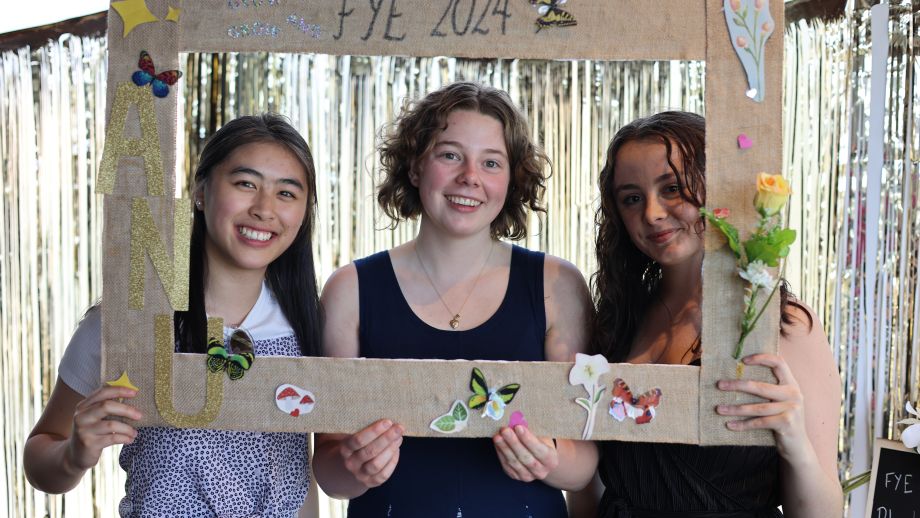Peace-Making and State-Making: The Case of Early Modern Japan
Presented by ANU College of Asia & the Pacific
Graduate Research and Development Network on Asian Security (GRADNAS) Seminar Series
What drives the formation of sovereign states? Existing accounts, most of which are based on European experience, argue that war-making is essential to state formation. This paper draws on a non-European international system to present a different explanation: peace-making and state-making. Departing from the existing theory that emphasizes the role of constant warfare under anarchy, it argues that it was the relative stability of hierarchical international order that emerged after a period of warfare that promoted state formation. It substantiates this argument through an examination of domanial states in Tokugawa Japan, which were officially under the shogunate’s rule but retained significant autonomy. It shows that state formation in premodern Japan accelerated after the end of the Warring States period, not during it. The introduction of loose hierarchical order and relative stability enabled states to build institutions and resources needed to demarcate their territories and bring society under their control. This paper thus tackles Eurocentrism in IR and offers an alternative account of state formation based on a non-European case.
Speaker
Naosuke Mukoyama is Associate Professor of Global Governance at the Institute for Future Initiatives, University of Tokyo. His research examines the emergence and development of the sovereign state, covering state formation, resource politics, and historical international relations. He is the author of Fueling Sovereignty: Colonial Oil and the Creation of Unlikely States (Cambridge University Press, 2024). His work has appeared in European Journal of International Relations, Comparative Politics, and Democratization, among others. Before joining UTokyo, he was a Postdoctoral Fellow at the Department of Politics and International Studies at the University of Cambridge. He received his DPhil (Ph.D.) from the University of Oxford, and his MPhil and LLB from the University of Tokyo.
Discussant
Manjeet S. Pardesi is Associate Professor of International Relations in the Political Science and International Relations Programme, and Asia Research Fellow at the Centre for Strategic Studies at Victoria University of Wellington. His research interests include Historical International Relations, Great Power Politics, Asian security, and the Sino-Indian rivalry. He is the co-author of The Sino-Indian Rivalry: Implications for Global Order (with Sumit Ganguly and William R. Thompson, Cambridge University Press, 2023). He is currently working on a book project titled Worlds in Contrast: Hegemonic and Multiplex Orders in the Mediterranean and the Indian Ocean (with Amitav Acharya, forthcoming with Yale University Press). His articles have appeared in European Journal of International Relations, Security Studies, Survival, Global Studies Quarterly, Asian Security, Australian Journal of International Affairs, International Politics, Commonwealth & Comparative Politics, International Studies Perspectives, Nonproliferation Review, Air & Space Power Journal (of the United States Air Force), The Fletcher Forum of World Affairs, World Policy Journal, India Review, Defense and Security Analysis, and in several edited book volumes. He is the co-editor of The Oxford Handbook of India’s National Security (Oxford, 2018) and India’s Military Modernization: Challenges and Prospects (Oxford, 2014). He is the Managing Editor of the journal Asian Security (since June 2018).
This event is the second in the GRADNAS Seminar Series of 2024. The series will showcase the emerging scholarship on the historical International Relations of Asia. There has been a “global” and a “historical” turn in International Relations scholarship in recent years. Scholars are increasingly looking at Asian history to enrich International Relations theory. What are the theoretical insights that emerge from studying Asian history? Does Asian history provide us with new concepts and new understandings of order? Does Asian history challenge the received metanarratives of International Relations theory? How were historical Asian polities connected with each other and with the world beyond Asia? Can the International Relations theoretical findings from Asian history shed light on other parts of the world? What, if anything, do these findings tell us about the emerging world order? Join us as we celebrate and showcase the excellent research by GRADNAS members and friends on the Historical International Relations of Asia. Visit our website here.
For more information, contact the GRADNAS Coordinator, Tommy Chai at gradnas@anu.edu.au.
Location
Speakers
- Associate Professor Naosuke Mukoyama
Contact
- Kian Kuemmel



